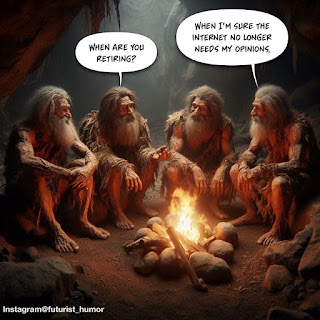We all know that the social media complex has problems. They mess with the mental and emotional health of our children, amplify misinformation, prioritize sensentational information, and distort the world through filtered lenses. But in addition to all of that, they are slowing our ability to make progress as humans. The following is my personal argument only.
The fundamental principle governing human progress dictates that to maximize individual potential, we must confront and overcome the systemic barriers that limit us. Societal limitations include challenges like climate change, inequality, resource scarcity, and political polarization – all demanding collective action and large-scale reform. Social media, however, is purposely designed to amplify divisive content which is an obstacle to collective, and unified action.
Systemic Challenges, Personal Struggles
Societal limitations directly constrain individuals, influencing their access to crucial resources, opportunities for self-development, and full participation in society. Economic disparity, for instance, translates into inadequate healthcare, limited educational and career pathways, and a lack of secure housing. This reality has a profound impact on the well-being and overall trajectory of individuals, highlighting the undeniable link between societal issues and personal hardship. Similarly, resource constraints, whether in the form of limited clean water or a deteriorating natural environment, can significantly disrupt livelihoods, compromise community health, and stifle progress.
The Impact of Social Media
The concept of a global, interconnected network designed for the free exchange of ideas and collaborative action carries immense potential for addressing societal limitations. Social media platforms, at their best, provide spaces for mobilizing support, amplifying marginalized voices, and facilitating the cross-pollination of innovative solutions. However, as we've witnessed, the algorithms fueling social media platforms prioritize engagement and agitation above all else. Content that is emotionally charged, divisive, or demonstrably false often gains maximum traction. This distorts public discourse, diluting attention from core societal problems and leading to misdirected activism. Furthermore, social media's tendency to create personalized echo chambers reinforces existing biases and stifles critical engagement, making it extremely difficult to find the common ground that a society needs to make progress. This polarization fundamentally undermines a society's ability to work collaboratively to solve shared societal challenges.
The Distortion of Truth: Misinformation as a Weapon
The unchecked proliferation of misinformation and conspiracy theories on social media erodes public trust in institutions and obscures evidence-based narratives on complex issues. Sensationalism takes precedence over factual reporting, exploiting our natural attention bias towards shocking content and hindering the public's capability for informed decision-making. This has a compounding detrimental effect, creating a breeding ground for societal division and undermining potential solutions that may foster progress.
Ideas for the Road Ahead
In order to make progress, we must find ways to mitigate the detrimental aspects of social media.
• Digital Literacy: Promoting widespread digital literacy, training individuals in critical evaluation of online information, and teaching source verification techniques will help them become more discerning consumers of social media content. Perhaps a decentralized approach to social media???
• Platforms: Social media companies must design algorithms that prioritize factual information and constructive dialogue.
• Policies: Standards and guidelines should be introduced to curb abusive and harmful online behaviors.
Today, social media, despite its immense potential as a collaborative tool is becoming a primary vector for societal decay – spreading misinformation and exacerbating divisions. Only by fostering online environments that prioritize truth, inclusivity, and constructive discourse can we transform this landscape. This shift is necessary not just to harness the potential of social media for positive change, but to empower a society capable of solving the significant and complex issues it faces in order to make progress.
*I use generative AI to assist in all my work.
************************************************************************
Kevin Benedict
Futurist at TCS
View my profile on LinkedIn
Follow me on Twitter @krbenedict
Join the Linkedin Group Digital Intelligence
***Full Disclosure: These are my personal opinions. No company is silly enough to claim them. I work with and have worked with many of the companies mentioned in my articles.




No comments:
Post a Comment